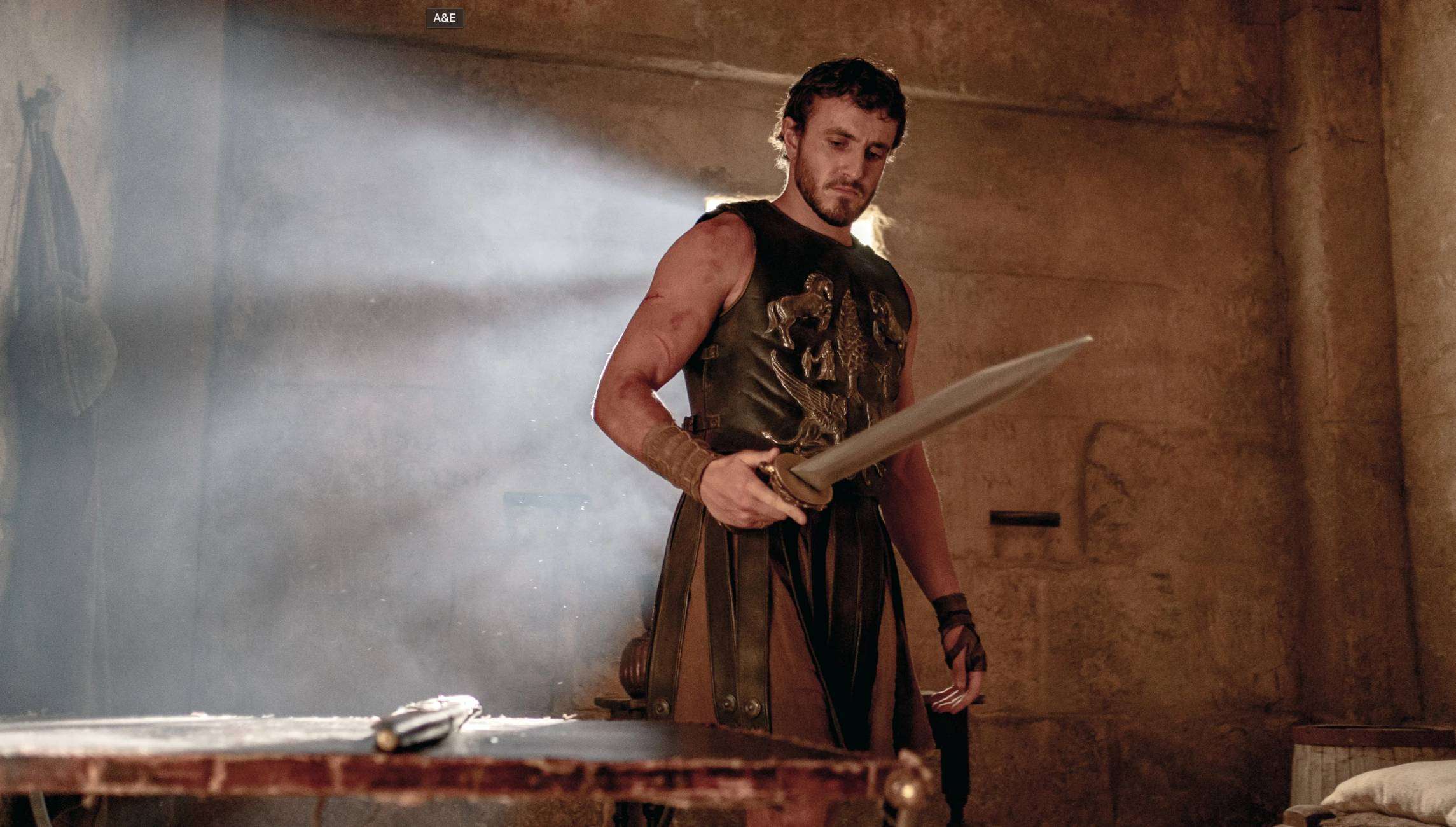Gladiator II: A Grand Yet Hollow Extravaganza
When “Gladiator” premiered in the summer of 2000, it marked a significant moment in cinematic history, representing the resurgence of the sword-and-sandals epic genre. The film’s narrative was self-contained, offering a complete story with a beginning, middle, and end, and it ultimately earned the prestigious Best Picture Oscar. Back then, the concept of post-credits scenes or a cinematic universe was not yet part of the mainstream filmmaking landscape, particularly within the drama genre. The absence of discussions about sequels or expanded narratives surrounding “Gladiator” indicated that it was perceived as a standalone masterpiece. Twenty-four years later, however, director Ridley Scott has returned to the world of gladiators with “Gladiator II,” raising questions about the motivations for revisiting this iconic film and what it means for the legacy of the original.
The rationale for the sequel seems to be linked to Ridley Scott’s continued productivity and passion for filmmaking, as he has directed ten films over the past twelve years. Interestingly, Scott’s fascination with the Roman Empire and an apparent desire to delve deeper into themes present in the original “Gladiator” serve as potential motivators for this new installment. As expected, “Gladiator II” continues the grand tradition of its predecessor, boasting action sequences that are not only bigger but also more ambitious, harnessing the latest advancements in special effects technology. The sequel promises a visually stunning experience, featuring extravagant set pieces like gladiators battling wild animals and innovative environments such as a flooded Colosseum.
However, critics have pointed out that while the scale of the action might be grander, the emotional stakes and narrative depth have diminished significantly. “Gladiator II” appears to replicate the first film’s major plot points without bringing anything new to the table, leaving audiences with a sense of redundancy. The story introduces a new protagonist, Lucius, played by Paul Mescal, who shares a desire for revenge against Marcus Acacius, the general responsible for a tragic event in his life. This foundational plot device, however, feels predictable and lacks the gravitas that Russell Crowe’s Maximus brought to the original film. Mescal’s portrayal, although competent, does not have the commanding presence necessary to anchor the sequel, which leaves the audience yearning for the emotional depth that characterized the first “Gladiator.”
The film does gain some momentum with the casting of Denzel Washington, who portrays Macrinus, a gladiator owner with ulterior motives. Washington’s magnetic screen presence injects life into the film, turning his scenes into moments of vibrant performance that contrast sharply with the muted dynamics of Mescal’s character. At times, “Gladiator II” hints at complex themes involving power dynamics and contrasting ideals of leadership represented by the two main characters, but these ideas remain underdeveloped and overshadowed by the spectacle of gladiatorial combat. The audience is left to wonder if a deeper exploration of political schemes and societal commentary would have provided a more compelling narrative instead of merely replicating the first film’s action-centric focus.
Despite the sequel’s shortcomings in narrative and character development, the motivation behind Scott’s decision to create “Gladiator II” seems tied to a desire to produce more of what audiences loved about the original. Scott’s penchant for historical spectacles continues, as he seeks to create a film that not only capitalizes on audience nostalgia but also showcases his meticulous craftsmanship in cinematic production. Ultimately, it appears Scott wishes to satisfy both his creative impulses and the public’s yearning for the gravitas of ancient Rome, resulting in a film that values grandeur over substance.
In conclusion, while “Gladiator II” offers a visual feast characterized by ambitious action sequences and vibrant performances—especially from Denzel Washington—it struggles to recapture the emotional weight that made its predecessor a beloved classic. The film’s echo of familiar themes and plotlines may offer entertainment for those drawn to epic narratives, yet fails to break new ground or provide fresh insights into its characters or their motivations. Ridley Scott, in his pursuit of more swords and sandals, ultimately leaves the audience wishing for the same level of narrative depth and emotional resonance that defined the original “Gladiator,” marking this sequel as a symbol of both nostalgia and missed opportunities in cinematic storytelling.
Share this content:












Post Comment